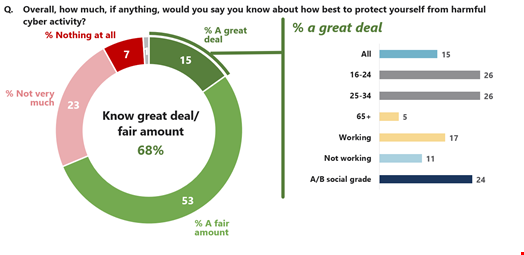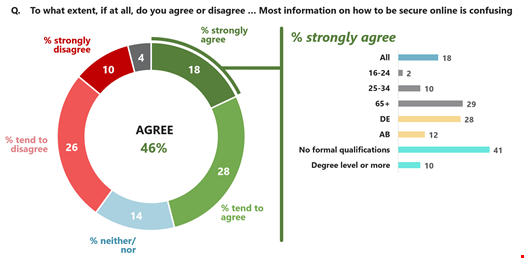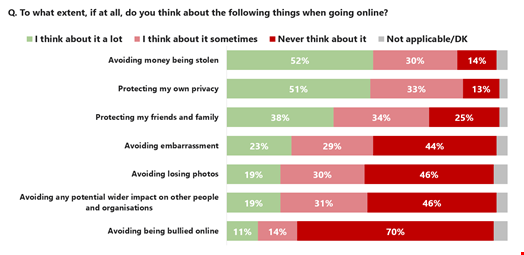The National Cyber Security Centre (NCSC) expects 42% of Britain online users to lose money due to fraud, according to its first UK Cyber Survey.
Released over the Easter weekend (April 21, 2019), the report also found that the most-used password from global cyber breaches was "123456," with "ashley" the most-used name as a password. The global password-risk list was published to disclose passwords already known to hackers.

The polling was independently carried out on behalf of NCSC, a part of GCHQ and the Department for Digital, Culture, Media and Sport (DCMS). The findings, as well as 100,000 passwords already known to have been breached by hackers, were released ahead of NCSC's CYBERUK 2019 conference, which will be taking place in Glasgow this week. These will inform government policy and guidance offered to the public.
Ian Levy, NCSC technical director, said: “We understand that cybersecurity can feel daunting to a lot of people, but the NCSC has published lots of easily applicable advice to make you much less vulnerable.
“Password reuse is a major risk that can be avoided – nobody should protect sensitive data with something that can be guessed, like their first name, local football team or favourite band."

According to the NCSC's announcement, the list was created after breached usernames and passwords were collected and published by international web security expert Troy Hunt. The website allows people to check if they have an account that has been compromised in a data breach.
The report also found that the proportions of respondents who felt they would be a victim of cybercrime in the next two years range from 12% having information stolen and a ransom demanded to 42% who feel they will have money stolen that will later be reimbursed. Only 51% feel that apps being accessed without consent will have a big personal impact, while 91% feel having money stolen without reimbursement would have a big impact.
Other findings included:
- Only 15% know a great deal about how to protect themselves from harmful activity.
- The most regular concern is money being stolen, with 42% feeling it will likely happen to them by 2021.
- 89% use the internet to make online purchases, with 39% on a weekly basis.
- One in three rely to some extent on friends and family for help on cybersecurity.
- Young people are more likely to be privacy conscious and careful of what details they share online.
- 70% always use PINs and passwords for smartphones and tablets.

Margot James, DMCS’ digital and creative industries minister, said, "Cybersecurity is a serious issue, but there are some simple actions everyone can take to better protect against hackers. We shouldn't make their lives easy, so choosing a strong and separate password for your email account is a great practical step.
“Cyber-breaches can cause huge financial and emotional heartache through theft or loss of data, which we should all endeavor to prevent."
The NCSC‘s two-day CYBERUK 2019 conference will see 2,500 delegates come to Glasgow’s Scottish Exhibition Centre on April 24 and 25 for a range of speeches, workshops and interactive displays.
